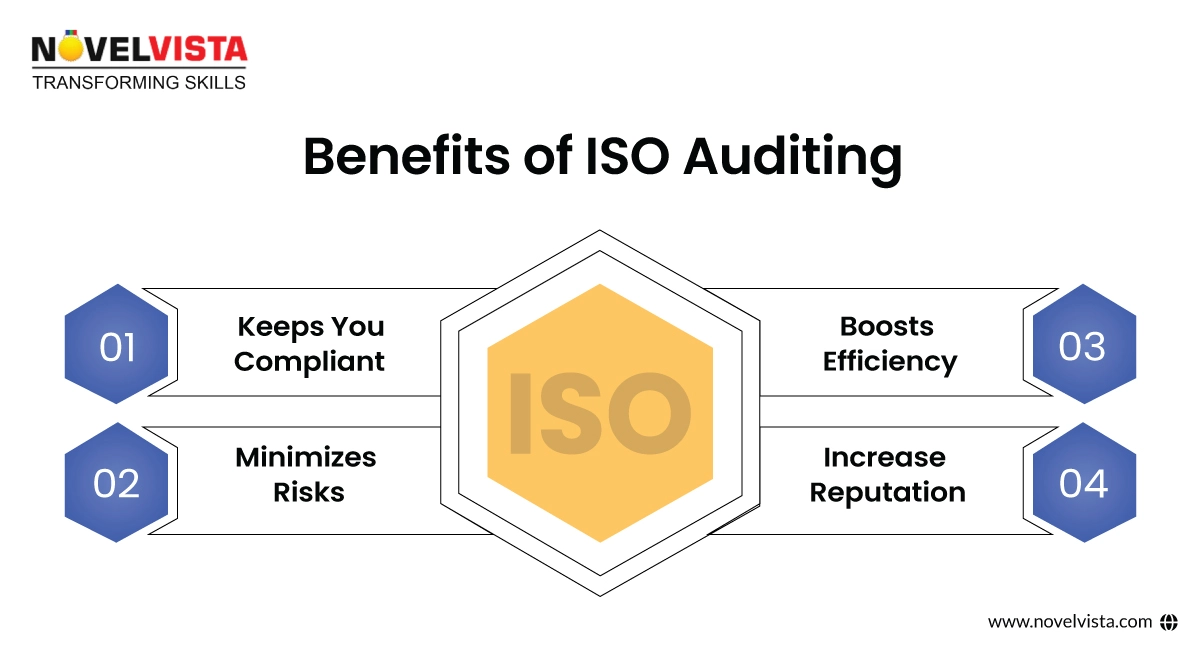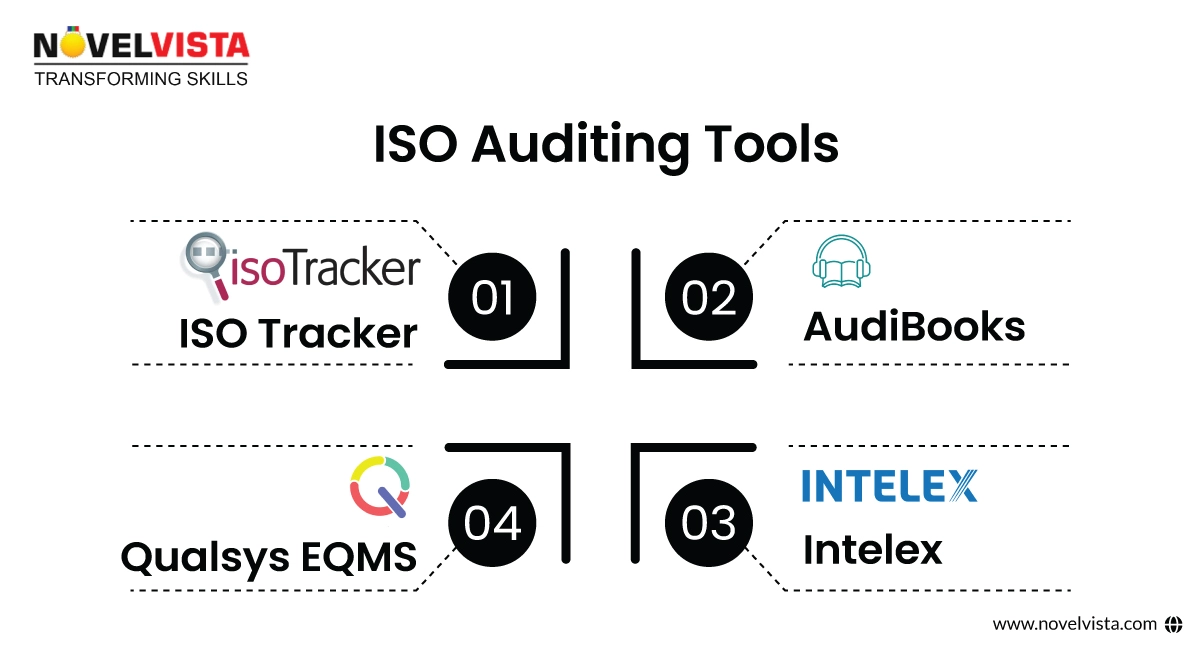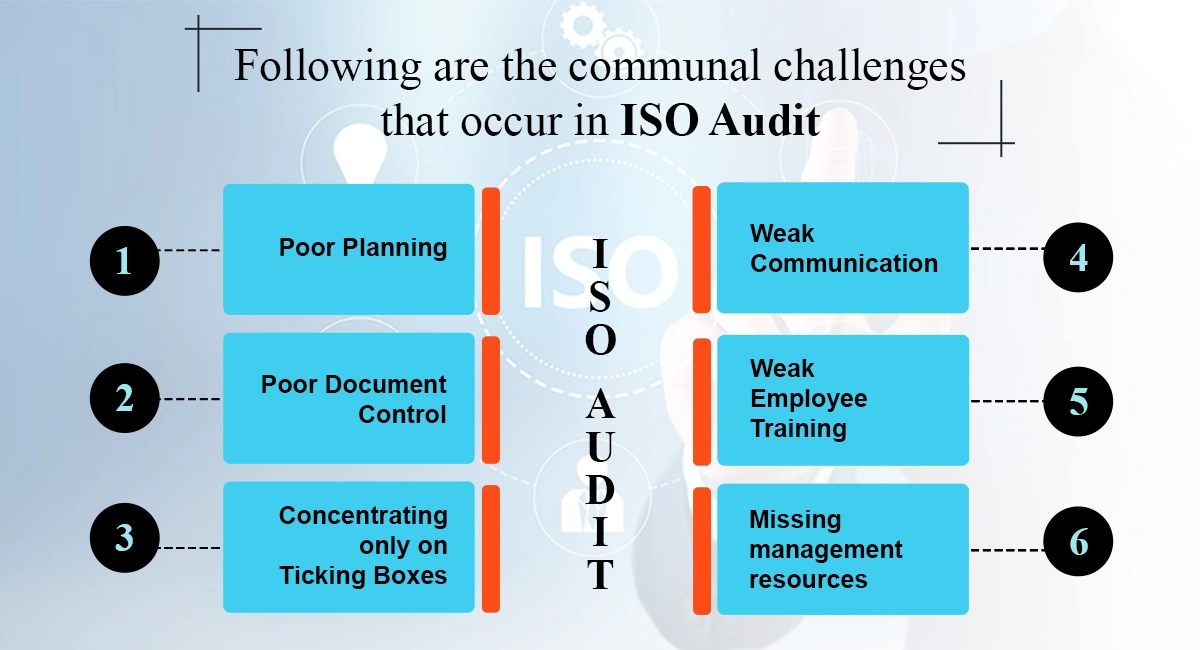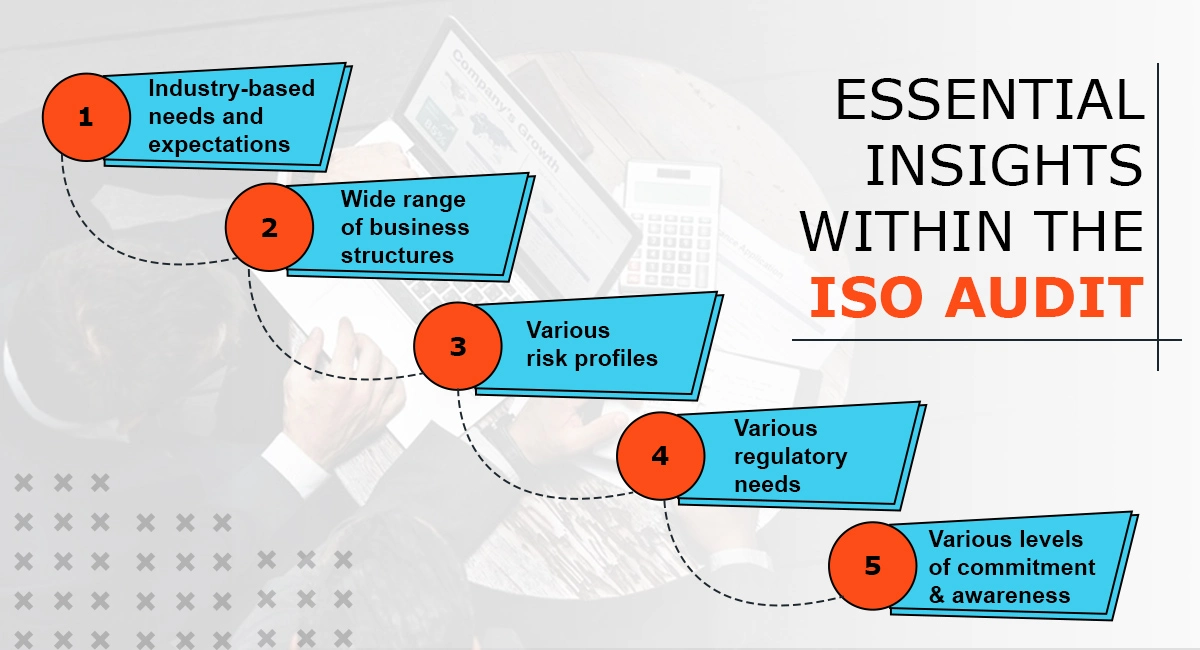ISO audits can sound challenging, but— they are more important than detailed cross-checking. Whether you are in manufacturing, IT, finance, or construction, these audits help organisations stay compliant, efficient, and future-ready. So, let’s break it down in a way that actually makes sense!
It is a form that measures businesses in opposition to quality standards. Basically, auditors uncover the areas of improvement. ThroughISO lead auditor certificationyou will explore more regarding the practices.
ISO Lead Auditingis the third-party measurement of the business's processes, steps, and operations in opposition to Industry Standards. The ISO Auditors are the experts who specialize in conducting ISO audits, and they are trained to evaluate and assess the business's compliance with the ISO standards.
Internal audits are known for proactive measures to analyze weaknesses, compliance gaps, and areas of enhancement before the external ISO auditor attains them. They serve to gauge the efficiency of the Quality Management System within the business. With the help ofISO training and certification in the UK,you will explore the in-depth practices of these.
The outcome of the internal audits is the input into the management review procedures along with the details offered from the internal audits, which are used by management to make decisions on resource allocations and procedure enhancements.
ISO standards are not only just a set of rules; they’re operations designed to help businesses grow. Here are three big ones:
Thesecross-industry ISO standardsmakes sure businesses don’t just satisfy legal requirements—they also build trust and improve operations.

Still confused about an audit? Here’s why it’s worth your time:

Good news—ISO auditingdoesn’t have to be a manual nightmare. The right tools can make the process smoother:
These tools help organisations improve industry-specific ISO audits, saving time and avoiding costly errors
ISO TrainingAudit adds value only if it is conducted in an appropriate way in business, like through improving and saving unnecessary costs. Although if it is done correctly, then it will bring a lot of benefits, if it’s done haphazardly, then it can cause significant damage to the business.
At the time when the Auditor comes in they are not always trying to get reasons to pinpoint the business but the objcteuve external auditor focuses on understanding the QMS work. It helps to provide theISO 9001:2015standard. So, basically the auditor will focus on the different opportunities for improvement which contributes to reducing the complexities.

Different audits require adequate attention, so if your group is working correctly, then it will be easy for auditors to reduce the critical aspects. Also, proper planning is needed to implement a robust roadmap that is easy to understand and follow, including addressing non-conformities. Also, when you have realistic action planning contributions in management, it provides everyone on board and makes sure the selected approach is well-coordinated.
Businesses that follow the quality-driven approach need to have in-detailed documents that contain soft copies of files that are successfully organised in a way that makes sense to them.
When it comes toISO auditing, businesses face communal challenges, and avoiding corners by using ticking boxes in an attempt to get over the audit process is one of them. It is an old method that can be ineffective and effective.
Reducing the corners mostly looks like fast result generation, and businesses might find themselves attaining long-term outcomes which could be more sustainable. Here, the factor that needs to be identified is that auditing must change within the industry because it's essential to implement maintainable and responsive management systems that find efficiencies throughout the operations and processes.
As an outcome, it undermines the general purpose of reporting, which might lead to an inaccurate representation of existing procedures, making continual enhancements challenging.
Industries can fall short when ISO auditors request records of employee training. For this, sectors or businesses need to prepare for employee training and other activities. The records of training completion are critical, but they aren’t the only component of competency and awareness you need to document consistently.
ISO Auditing expanded and clarified the need for management responsibility. Unprepared or missing management causes issues for QMS in different ways, such as insufficient resources or employees who consistently operate outside the system.
The software can significantly clear compliance with the ISO needs for document control, which is linked with the quality procedure and employee training. The keyword here is CAN. The wrong enterprise quality management software can actually make these components more complex.
In other cases, corporations become overly excited and choose the most advanced eQMS that fits within their budget. Hopefully, they discover that their new software needs to be simplified to operate or that it needs a full-time administrator and a ton of custom code. To avoid these challenges you must need to haveISO Certification.

Conducting audits across various industries indeed brings different challenges and insights because of their diverse complexities and requirements. Following are some communal insights gained from industry experiences:
These are the different insights of ISO Auditor Industries gains.
To know more aboutGetting ISO Lead Auditor Certified: It's Not as Scary as You Think
Still not convinced? Let’s look at some real-world wins:
Master ISO standards
Confused about our certifications?
Let Our Advisor Guide You